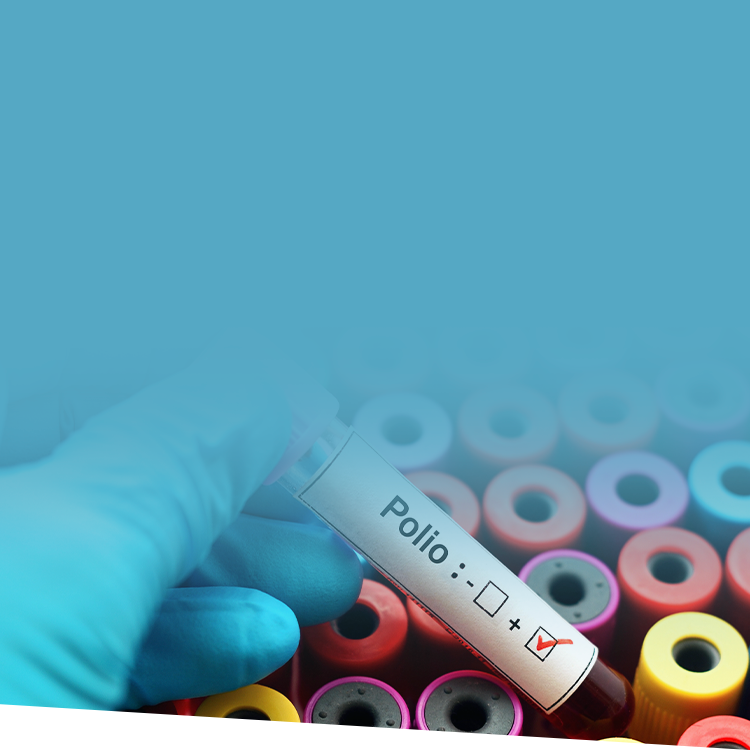New York City recently declared a health emergency when polio paralyzed a woman. This was the first diagnosis in the United States in nearly a decade, and New York's first case in over 30 years.
Now, schools (and the country at-large) are on alert. Questions about polio—and how it made its way into New York—are swirling in the minds of many.
Lisa A. Smith, M.D., Medical Director of COVID Services for One to One Health and Assistant Professor in Surgery and Pediatrics at the University of Tennessee, referenced polio during the COVID pandemic, "because it's contemporary, in my lifetime. When Jonas Salk developed his vaccine, less than 25 years later, polio was eliminated in our country. It was relevant to the development of covid vaccines.”
So, if it was eliminated, how did a positive, paralytic case pop up in New York? And what should you do to protect yourself and your school community against polio?
Here's what Dr. Smith had to say.
How It's Spread
First, polio today may not be the same as it was before. Public health officials believe this virus originated overseas in a country that still uses the oral polio vaccine, making the strain a “circulating vaccine-derived poliovirus.” The oral polio vaccine (OPV) uses a live but weakened form of poliovirus that replicates in the gut. Recently immunized people can pass the oral vaccine virus on to others for a few weeks, but it’s not normally a problem because the strain is weakened so it does not cause disease. “Vaccinated individuals can carry the virus because they can still be infected but you are protected from serious disease (like getting paralyzed),” Smith said. “Given time, the weakened poliovirus can mutate and acquire virulence, and become a virus like the one spreading here in the U.S.”
The disease spreads from a fecal-to-oral route. So, washing your hands after going to the bathroom is extremely important to prevent spreading polio. Unfortunately, this isn't the best news for schools. "Polio can go rampant in little kids because they are not as good with hand hygiene," Smith said. "Like COVID, one can be infected with polio, show no symptoms, and not fall ill. For example, paralysis occurs in one out of every 200 or one out of every 2,000 people who catch the virus, depending on the strain."
Vaccines
There are two types of polio vaccines: One is administered as an injection, and the other is administered orally (usually on a sugar cube). Many other countries still rely heavily on the sugar cube because of a lack of resources. "Oral polio vaccination is instrumental in eradicating the wild polioviruses because it stops the spread with gut immunity," Smith said. "The one caveat is that, when there aren't enough people with [the oral] vaccination, the vaccine-derived poliovirus starts to spread among the unimmunized."
The United States, during the 1970s and exclusively since the year 2000, "gave the inactivated polio vaccine as a shot, which protects against paralysis from any kind of poliovirus."

Tune in to live webinars every week during the school year to get specific, research-backed insight you can immediately apply at your school.
And the resurgence of polio is because people understood it to be eliminated. "Parents stopped vaccinating their children because the diseases were eradicated," Smith said. "The fear of contracting polio was so low, almost non-existent, so perhaps parents felt a false sense of security."
But Smith cautions against not vaccinating for polio. "This case in New York should serve as a wake-up call to anyone unvaccinated or partially vaccinated," Smith said. "Check your records, speak with a medical provider, and be certain you are up to date on your polio vaccinations."
Smith shares that "unvaccinated people are at the highest risk of getting the paralytic disease—one in 100 infected individuals develop severe disease, including permanent paralysis."
What Does This Mean for Schools?
Schools (faculty, staff, parents, and administration) should remain vigilant about polio. They must know the risk factors, avenues of transmission, and symptoms. Polio is a paralytic disease, so it must be taken seriously.
Hand sanitizer will prevent the disease, so frequent hand washing with soap is critical. School leaders can also encourage public health officials to monitor wastewater. "All it takes is someone with an active polio virus in their gut who's been vaccinated with oral polio vaccine, and [it] gets into the sewer system," Smith said. "Wastewater surveillance is key because you don't know something is there unless you look for it. We have the tools."





